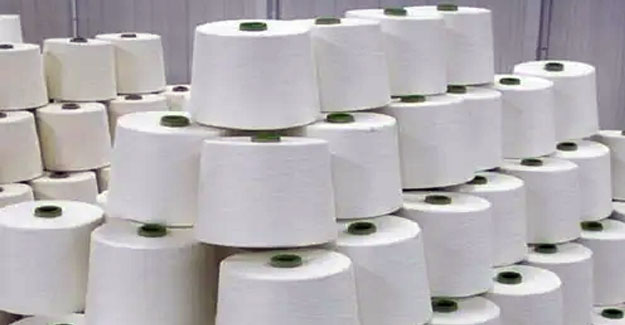
Chinese Demand For Cotton Yarns Remains Dull
China's forward imported yarn market remains sluggish after the Spring Festival holiday. Chinese traders and weavers had replenished stocks before the holidays, so overall demand after the holidays has been weak. And the coronavirus outbreak has only worsened demand for imported yarns. Weavers are gradually returning to work, especially the large-scale companies. But the small & medium-sized weavers are still shut down. And it is only the local residents who are returning back to their workplaces. Besides restrictions on travelling, logistics have been impacted too, with delays in deliveries, transportation, resulting in stock accumulation. Trading will be dull for some more time. Cotton yarn prices drop In early-mid January, cotton prices had moved up. Indian cotton rose significantly from 70.46 cents/lb to 73 cents/lb. Pakistani Grade 3 cotton rose slightly from 69.6 cents/lb to 70.68 cents/ lb. CotlookA rose from 77.85 cents/lb to 79.2 cents/ lb. After the Chinese Spring Festival holiday, the CotlookA climbed slowly, and Indian and Pakistani cotton price remained steady. The increase in forward imported yarn price before the holiday was much larger than that in cotton prices, mainly due to China's regular replenishment from Vietnam & Pakistan, and traders in Bangladesh and Egypt continued to purchase Indian yarn. After the Spring Festival holiday, the stagnation of Chinese orders is reflected in forward imported yarn price. Indian exporters are burdened with stocks due to few purchases from China in the past two months, and the recent reduction in orders from Bangladesh and Egypt. Price spread between spot and forward still exists Price of spot imported yarn continued to be lower than forward one. Pakistani siro-spun carded 10S expanded from 396 yuan/mt to 498 yuan/mt from early-2020. Vietnamese carded 32S for airjet increased from 537 yuan/mt to 704 yuan/mt. Indian yarn price spread dropped from 990 yuan/mt to 753 yuan/mt. Judging from the price spread between the spot and forward, the latter one is much higher than the former, and buyers may be more cautious in purchasing. Onshore RMB devaluated Onshore RMB has shown an upward movement since late-January, and it has little advantage for purchasing imported yarn. Polyester market faces piling inventories, falling prices A similar situation exists in China's polyester market too, with stocks of polyester, especially PFY accumulating as downstream companies are still to resume production. Sales ratio of PSF apparently ascended and stocks reduced rapidly after some enterprises greatly slashed price to near cost line. PSF prices were reduced by 600-700 yuan/mt compared with pre-holiday level. However, demand for PSF was better than that for PFY. The PFY market remained largely quiet: only some companies revised down offers, and most leading companies sustained pre-holiday price level. Most market players retreated to sideline, so transactions failed to rise apparently. Speculative demand always exists no matter downstream companies have orders or not. Participants usually stock up when price declines a lot. This will be evident in the market in the coming days. Virgin PSF can replace recycled PSF when price of the former is low. The PFY market remained largely quiet: only some companies revised down offers, and most leading companies sustained pre-holiday price level. Most market players retreated to sideline, so transactions failed to rise apparently. Speculative demand always exists no matter downstream companies have orders or not. Participants are supposed to hoard up stocks when price declines a lot. Price of PSF, PET bottle chip and PET fiber chip has decreased to near cost line recently. Therefore, the incentive of price reduction on PFY market on the downstream speculative demand should be seen subsequently. Meanwhile, for the downstream market, the traditional peak season of the textile industry in March-May is anticipated to be discounted when the sales of winter wear and spring wear is dragged down by the epidemic and some exporting orders are transferred.
Textile Excellence
If you wish to Subscribe to Textile Excellence Print Edition, kindly fill in the below form and we shall get back to you with details.












